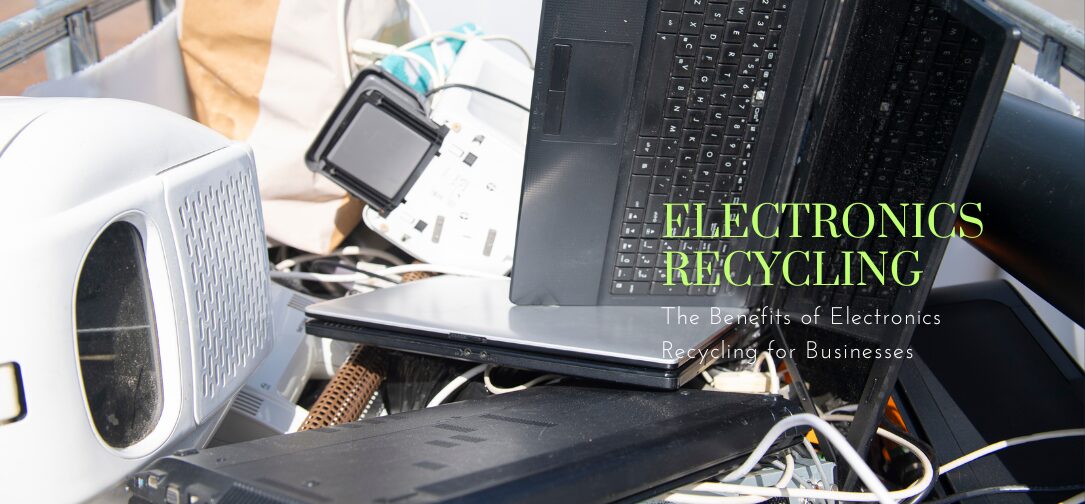In today’s fast-paced digital world, technology inevitably becomes outdated and needs replacing more frequently. Businesses that invest in sustainable disposal methods for their electronic devices not only protect the environment, but also enjoy a range of practical benefits. From improving brand image to mitigating compliance risks, electronics recycling is a crucial aspect of corporate sustainability. Below, we explore how embracing responsible e-waste management can significantly benefit businesses.
Regulatory Compliance and Risk Management
One of the most pressing reasons to recycle electronics responsibly is to adhere to local, national, and international e-waste regulations. Improper disposal of electronic devices can lead to legal penalties, fines, and damage to a company’s reputation. By partnering with certified e-waste recyclers and following established recycling protocols, businesses can:
- Avoid regulatory fines: Meeting or exceeding environmental standards ensures compliance and prevents costly fines.
- Minimize risk exposure: Safe handling of potentially hazardous materials (such as lead, mercury, or cadmium) helps avoid legal and financial liabilities.
Enhanced Data Security
Modern electronic devices store vast amounts of sensitive information—from client data to trade secrets. Simply discarding old computers or servers can leave confidential data vulnerable to breaches. Electronics recycling companies that specialize in secure data destruction help businesses:
- Protect sensitive information: Certified recyclers offer data wiping, hard drive shredding, or degaussing services, ensuring that no trace of confidential information remains.
- Build customer trust: Demonstrating diligence in protecting client data and corporate secrets fosters a secure, professional reputation in the marketplace.
Positive Environmental Impact and Brand Image
Businesses increasingly recognize the value of promoting environmental stewardship. Recycling electronics shows tangible commitment to sustainability, which:
- Reduces landfill waste: Recycling helps keep toxic materials and heavy metals out of landfills, contributing to cleaner air, water, and soil.
- Preserves natural resources: Many materials in electronic devices, like copper, silver, and aluminum, can be reclaimed and reused, reducing the need for mining new resources.
- Enhances corporate reputation: Sustainable practices resonate with environmentally conscious consumers and investors, helping businesses stand out in a competitive market.
Cost Savings and Potential Revenue
Electronics recycling can present opportunities for cost savings or revenue generation in several ways:
- Component reusability: Businesses can recover and reuse parts like processors, circuit boards, or memory modules if they are still in good working condition, thereby reducing procurement costs for new hardware.
- Rebates and incentives: Some recycling programs offer credit, discounts, or reimbursement for certain valuable components
- Reduced storage costs: Hoarding obsolete electronics in a warehouse or office space can be costly. Recycling frees up valuable real estate, ultimately lowering overhead expenses.
Strengthened Corporate Social Responsibility (CSR) Efforts
As sustainability becomes a central focus in corporate strategies, electronics recycling aligns perfectly with broader CSR commitments. By incorporating e-waste management into environmental programs and sustainability reports, businesses:
- Demonstrate ethical values: Proactive environmental and social responsibility helps attract and retain top talent, partners, and stakeholders who value ethical practices.
- Contribute to a circular economy: Properly recycled electronic materials re-enter the production cycle, creating a more sustainable, circular economy and reducing dependence on virgin resources.
Competitive Advantage in a Changing Market
The green economy is on the rise, and consumers are increasingly conscious of how and where they spend their money. Companies that adopt and communicate their eco-friendly practices can:
- Differentiate their offerings: A strong sustainability message can become a competitive selling point.
- Attract sustainability-minded clients: Many organizations prefer partners that meet or exceed environmental standards—integrating electronics recycling into your business model can help you stand out in proposals and contracts.
Practical Steps for Successful Electronics Recycling
To maximize the benefits of electronics recycling, businesses should take a structured and strategic approach:
- Audit and inventory: Identify all outdated or unused electronic equipment and classify them by condition and functionality.
- Choose a certified recycler: Look for recyclers with state-backed permits/licenses that demonstrate responsible electronics recycling.
- Implement secure data destruction: For devices holding sensitive data, verify that the recycler offers reputable data-wiping or destruction services.
- Track your impact: Document weight, type, and quantity of recycled items. Track the positive environmental impact and use these metrics for CSR reporting.
Conclusion
Electronics recycling is not just a responsible environmental practice—it’s also a smart business strategy. By recycling outdated electronics, organizations can protect data security, ensure regulatory compliance, and enhance their corporate reputation. In addition, the financial and operational benefits—from reduced storage costs to potential revenue streams—illustrate that embracing e-waste management is both economically and ethically sound. As sustainability continues to shape business and consumer landscapes, adopting a robust electronics recycling plan will help companies thrive in a greener, more conscientious marketplace.



































